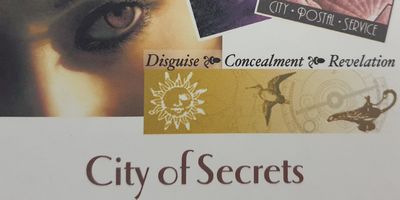A few weeks ago, I stumbled upon a game box that was buried in a bookshelf. It turned out to be Emily Short’s City of Secrets, made in a tiny run and sold at the long-defunct feelies.org. I had originally ordered three copies back in 2002, two for friends to save on postage, but one had never been picked up. I realised that I now have two copies of this very rare game, one in a completely unopened condition – and thought it might be fun to show people the original package, and the contents once opened.
Since I hadn’t been planning on making a lot of videos anymore, this looked like a nice Christmas surprise, so I recorded and edited a quick “unboxing” video.
During filming, it turned out that the other package had in fact already been opened. I don’t know when that happened, as I’m fairly sure I never took the contents out of the box before. So either I’m misremembering that part (though why would I open two boxes?), or something went wrong packaging this one. Both possibilities seem unlikely, but it must be one of them. Nothing changes anything about the actual contents, or the information I’m providing, so I won’t let that spoil my surprise video.
By the way: the damage to the leaflet inflicted when opening it is not quite as bad as it looks. The paper seal fell off when folding it back together, and there is a tiny notch in one of the edges that is hardly noticeable.
A little background: feelies.org was started around the year 2000, I believe by Emily Short and Stacy Cowley with the help of some others, as a means to offer people additional items for text adventure (or “Interactive Fiction”) games that they could take in their hands, thus the name, feelies. The term was originally used in the 80s by the people at Infocom, who had also made the packaging contents an exciting and, later, integral part of the game experience.
At feelies.org, game creators could decide how they wanted to present their game, and order printed or crafted materials, which were then offered to the customers in a complete package. City of Secrets is one of the most lavish games, but for instance Losing Your Grip (by Stephen Granade) also has some beautiful items. Others were a little simpler, but that was usually reflected in the price.
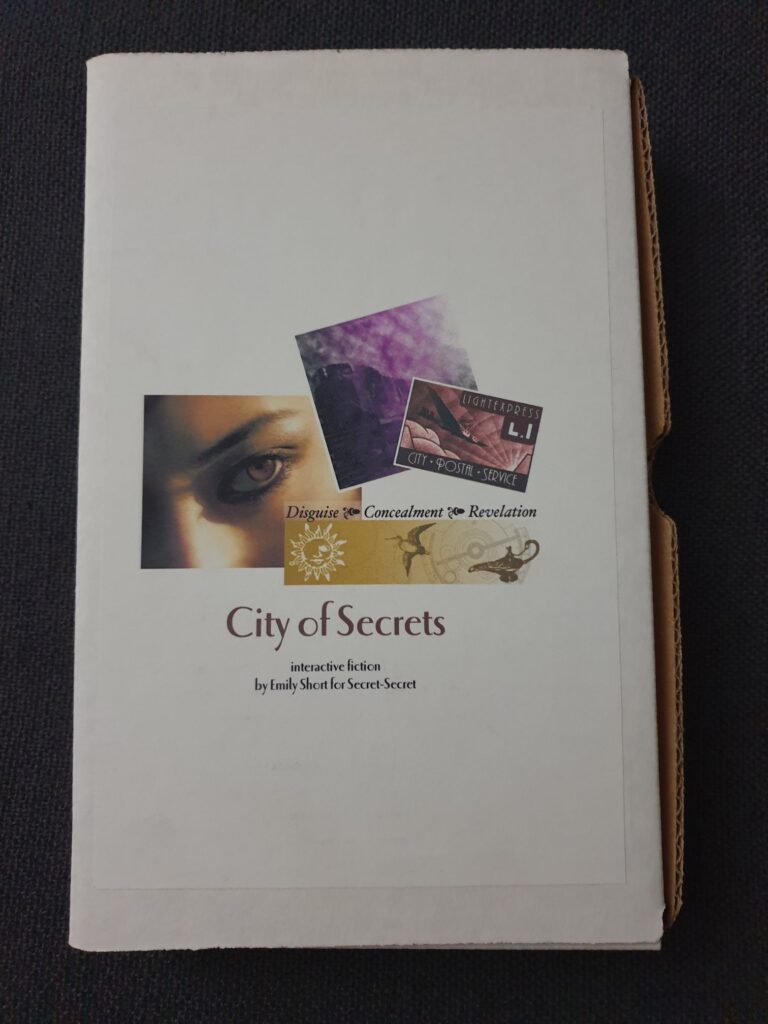
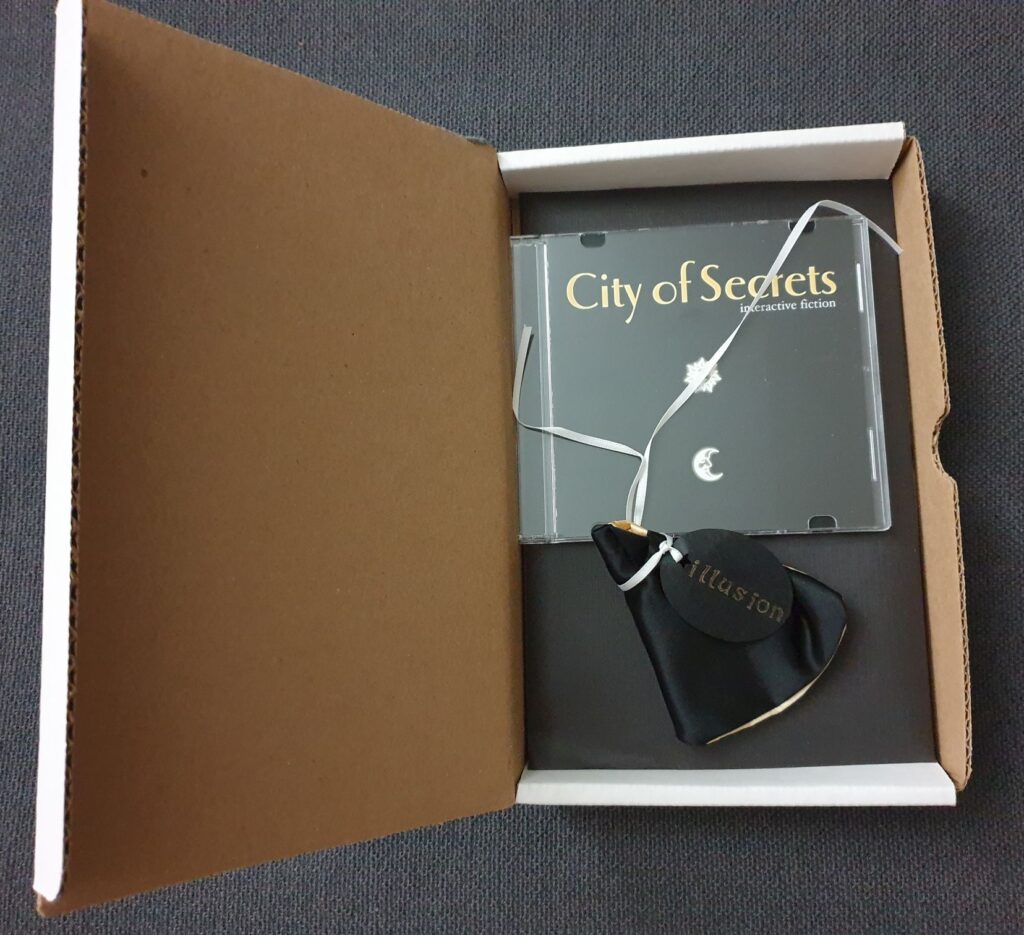
The Interactive Fiction scene was in a phase of transition at the time, drawing a new crowd, and experimenting with the new possibilities of the emerging internet (this was right around the “dotcom” hype), so many novel ideas such as this one manifested themselves – but the scene was small and spread out, and there was never a huge commercial potential during that phase. There are no sales figures for the feelies.org games, but from what I could gather, they would have been in the lower to middle double digits, up to maybe 60–80, or 100 in the most successful cases.
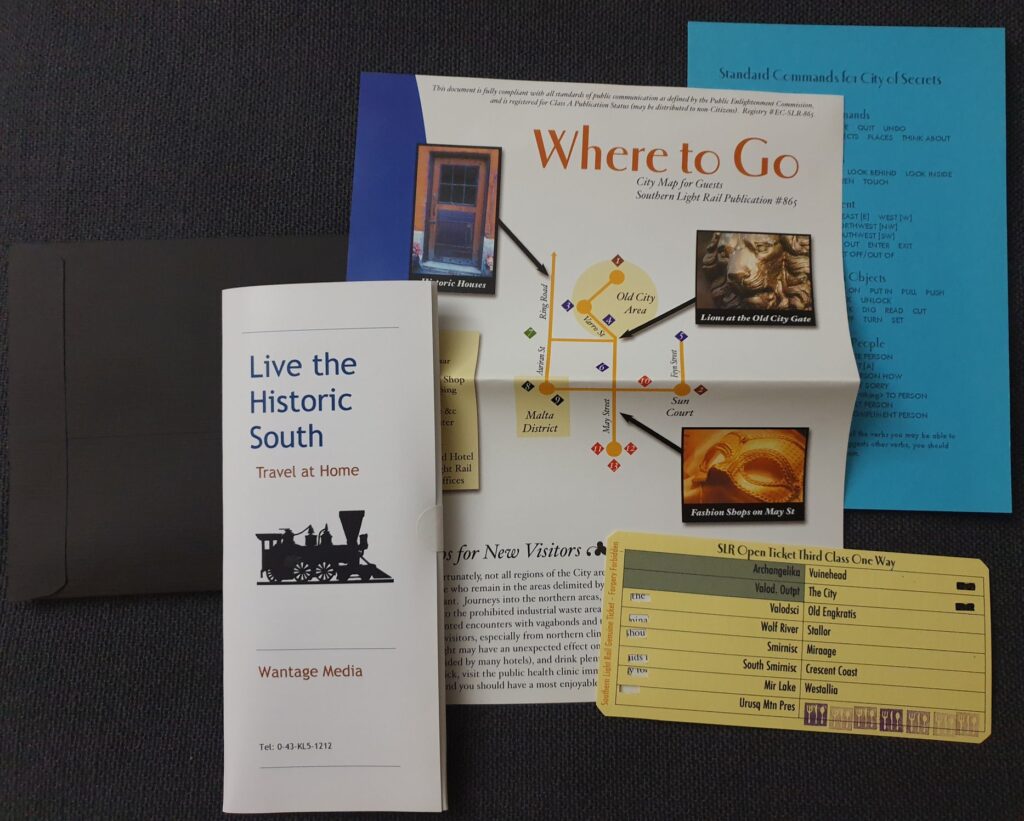
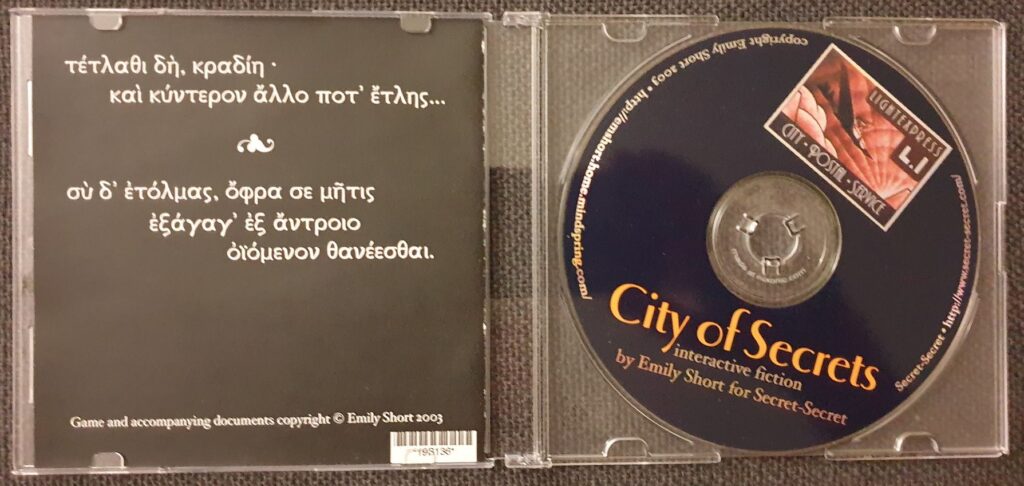
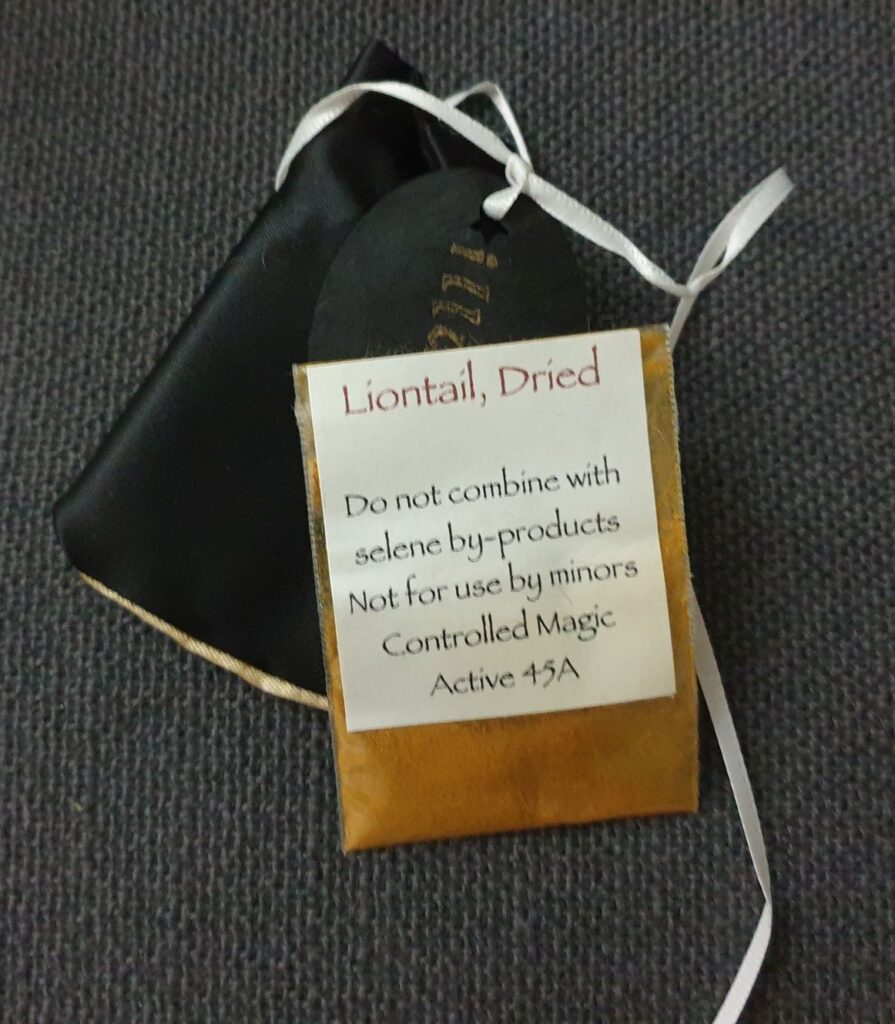
City of Secrets itself comprises:
- a cardboard box with an inkjet-printed colour cover glued on
- a professionally-printed CD-ROM in a jewel case with an inkjet-printed cover
- a pouch containing a small plastic bag of “Liontail, Dried” (really five-spice powder)
- a black envelope containing the following professionally-printed items:
- a reference card with some common commands
- a train ticket with punched holes and printed stamps
- a folded, sealed and stamped “Live the Historic South” advertisement leaflet
- a “Where to Go” / “What to see” leaflet
The pouches were actually different for each package (mine is black and yellow satin, the other some kind of black velvet), as they were hand-sewn from scraps by Ms. Short and her sister.
And that’s about all the information I can give you, so let me finish with some additional links.
Emily Short has written a very thorough and interesting blog post of her recollections about this game, how it came to be, and how feelies.org was founded.
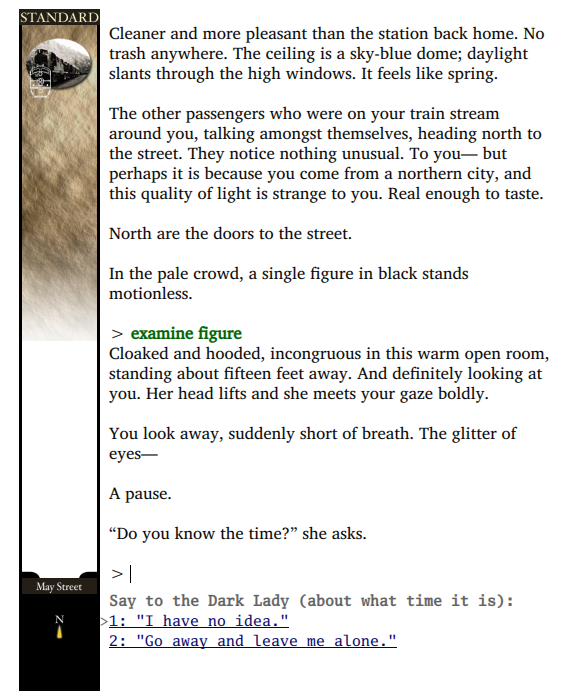
Here‘s the game’s page at the IFDB. You can download it at the IF Archive, but be advised that you will need a Glulx interpreter to play (also available at the IF Archive).

